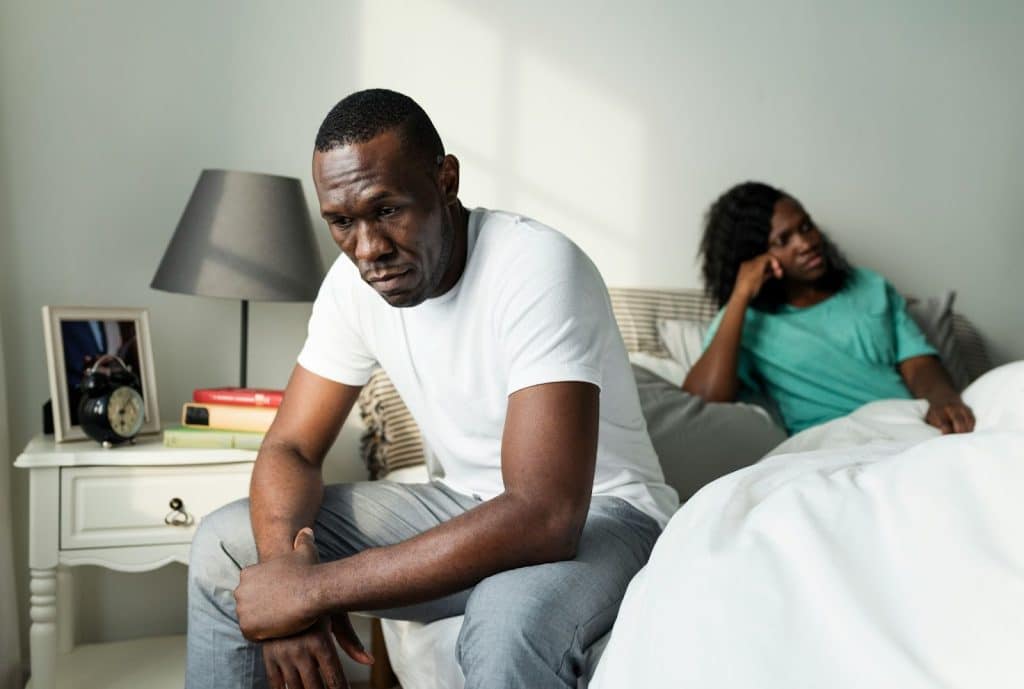
Trust doesn’t vanish in an explosion of betrayal, it fades in small, almost forgettable moments. It slips away when promises are brushed aside, when truths are half-told, or when someone chooses comfort over honesty. What hurts most isn’t always the act itself, but the realization that what you believed was solid never truly was. Every time doubt enters the picture, it leaves a mark that can’t be erased. People rarely notice when trust is breaking; they only notice once it’s gone.
When Words Stop Matching Actions

The first fracture happens when someone says one thing but does another. You want to believe their intentions, so you ignore the inconsistency at first. But every broken promise chips away at the foundation you once felt safe standing on. The damage isn’t in the mistake, it’s in the repetition. Eventually, you stop listening to their words and start counting their silences.
When “It’s Not a Big Deal” Becomes the Excuse

Every time you’re dismissed, it teaches you that your feelings are negotiable. Minimizing pain doesn’t heal it, it only makes it harder to trust that future hurts will matter. When someone calls the things that cut you “small,” they quietly tell you that you’re overreacting. That’s how safety disappears: not through cruelty, but through constant invalidation.
When Truth Comes Out by Accident

There’s a unique kind of pain in learning something you were meant to know but weren’t told. It doesn’t have to be infidelity, sometimes it’s a secret, a lie of omission, or a truth delayed too long. You realize they didn’t just hide the act, they hid your right to react. That moment shifts everything. The words “I didn’t want to hurt you” stop sounding like protection and start feeling like control.
Moments That Feel Small But Change Everything

The most dangerous cracks in trust are the ones that look insignificant. You brush them off, tell yourself you’re being dramatic, or try to move on quickly. But emotional safety breaks slowly, in whispers, not shouts. What looks like patience is often just someone losing faith quietly. Love without trust doesn’t end instantly, it starves to death in small, unspoken moments.
When They Stop Listening and Start Defending

You try to open up, but instead of understanding, you’re met with justification. Every conversation becomes a debate instead of a dialogue. You stop sharing, not because you’ve run out of words, but because you’re tired of proving your pain. When someone chooses to defend themselves over comforting you, trust begins to retreat.
When Promises Start Needing Reminders

Once upon a time, they remembered things on their own. Now, you have to ask, repeat, or beg to be prioritized. The gesture loses its meaning the moment you have to request it. The care feels forced, and love starts feeling like an obligation. Consistency is the quiet language of reliability, once it fades, faith follows.
When Secrets Replace Transparency

Privacy is healthy; secrecy is not. There’s a fine line between keeping something personal and keeping something hidden. When you start feeling the difference, it’s too late, the walls have already gone up. You stop asking questions, not because you trust, but because you fear the answers. That’s when love stops feeling safe.
The Emotional Distance That Follows

Once trust is shaken, distance begins to form, not out of spite, but out of self-protection. You no longer share as freely, laugh as easily, or love as fearlessly. There’s hesitation where there used to be certainty. The relationship continues, but something inside it has quietly died. And no matter how much love remains, it never feels as whole as before.
When You Start Censoring Yourself

You think before you speak, carefully choosing words that won’t trigger another argument or denial. The openness that once built intimacy now feels risky. You start swallowing feelings instead of sharing them, just to keep things calm. But emotional silence isn’t safety, it’s surrender. Once trust makes you self-edit, it’s already broken.
When Reassurance Stops Feeling Reassuring

Even when they say the right things, it doesn’t land the same anymore. You nod, but something in you stays guarded. You’ve seen too many contradictions between what’s said and what’s done. The comfort that once calmed you now feels temporary, fragile, and performative. That’s when you realize, the words don’t work anymore.
When You Begin Expecting Disappointment

You stop getting surprised when they let you down. Instead, you brace for it, quietly, cynically, like someone who’s been burned too many times. Hope becomes effort; belief becomes exhaustion. That shift is irreversible. Once you start anticipating hurt, trust is no longer part of the relationship, survival is.
When Apologies Come Too Late

Apologies can acknowledge pain, but they can’t undo history. Sometimes, by the time someone realizes what they’ve done, the damage has already rewritten the story. Trust doesn’t vanish overnight; it fades each time someone chooses comfort over accountability. Words like “I’m sorry” feel empty when they come after months of disregard. Forgiveness might come, but it will never bring back what was lost.
When “Sorry” Becomes a Routine

An apology that keeps repeating loses its weight. It becomes a pattern, a ritual to reset the damage without real change. You begin to recognize it for what it is: a promise without transformation. The moment you stop believing their remorse, the emotional thread finally snaps. Trust doesn’t need perfection; it needs sincerity.
When They Apologize for the Consequence, Not the Cause

Some apologies are just regret for getting caught, not for breaking faith. You can feel it, the words sound right, but the tone feels hollow. They’re sorry you’re upset, not that they caused the pain. Real accountability owns the action, not just the outcome. Without that, forgiveness becomes survival, not healing.
When Repair Comes Too Late

Time can heal, but it can also harden. The longer someone takes to fix what’s broken, the more permanent the distance becomes. You stop waiting, not because you’ve moved on, but because you’ve run out of hope. By the time they finally try, the version of you that they trusted is already gone. Some bridges aren’t burned, they’re just abandoned for too long.
The Hard Truth About Rebuilding What’s Gone

Trust can sometimes be rebuilt, but it never looks the same. It’s like gluing together shattered glass, it may hold, but the cracks remain visible. You learn to forgive without forgetting, to love without relying fully. The innocence of “I believe you” turns into “I’ll wait and see.” What once was natural now requires proof, and that’s the quiet grief of love that’s been broken.
When You Start Keeping Score Without Meaning To

You tell yourself you’ve moved on, but part of you is always measuring, every word, every promise, every pause. You don’t do it out of spite; it’s instinct now. Even when they’re trying, you’re quietly testing. That’s not bitterness, it’s a symptom of betrayal that logic can’t undo. Trust doesn’t die; it calcifies.
When You Forgive But Stop Feeling Close

You say you’ve forgiven them, and maybe you have. But the warmth that once came so easily no longer does. There’s a distance, invisible but undeniable, between what was and what is. You care, but you don’t confide. You love, but you no longer lean. That’s how love survives without thriving.
When You Stop Expecting Honesty Altogether

The final stage of broken trust isn’t anger, it’s acceptance. You stop being shocked by lies or omissions because you’ve adjusted to disappointment. It’s not bitterness; it’s emotional fatigue. You still show up, but only with part of yourself. When you stop expecting truth, you’ve already stopped believing in the relationship.
Conclusion: Trust Breaks Quietly, and It Rarely Returns the Same

Trust doesn’t end in betrayal alone; it ends in every unspoken moment that chips away at safety. Once it’s cracked, it never returns untouched, it can be rebuilt, yes, but never restored to its first form. People can grow, heal, and forgive, but something soft and sacred always changes.
The truth is, trust is fragile because it’s built on belief, not proof. Once that belief is fractured, every reassurance has to compete with memory. The relationship might survive, but it will never feel weightless again. And maybe that’s the hardest part: realizing that sometimes, love can stay, but innocence never does.






Ask Me Anything